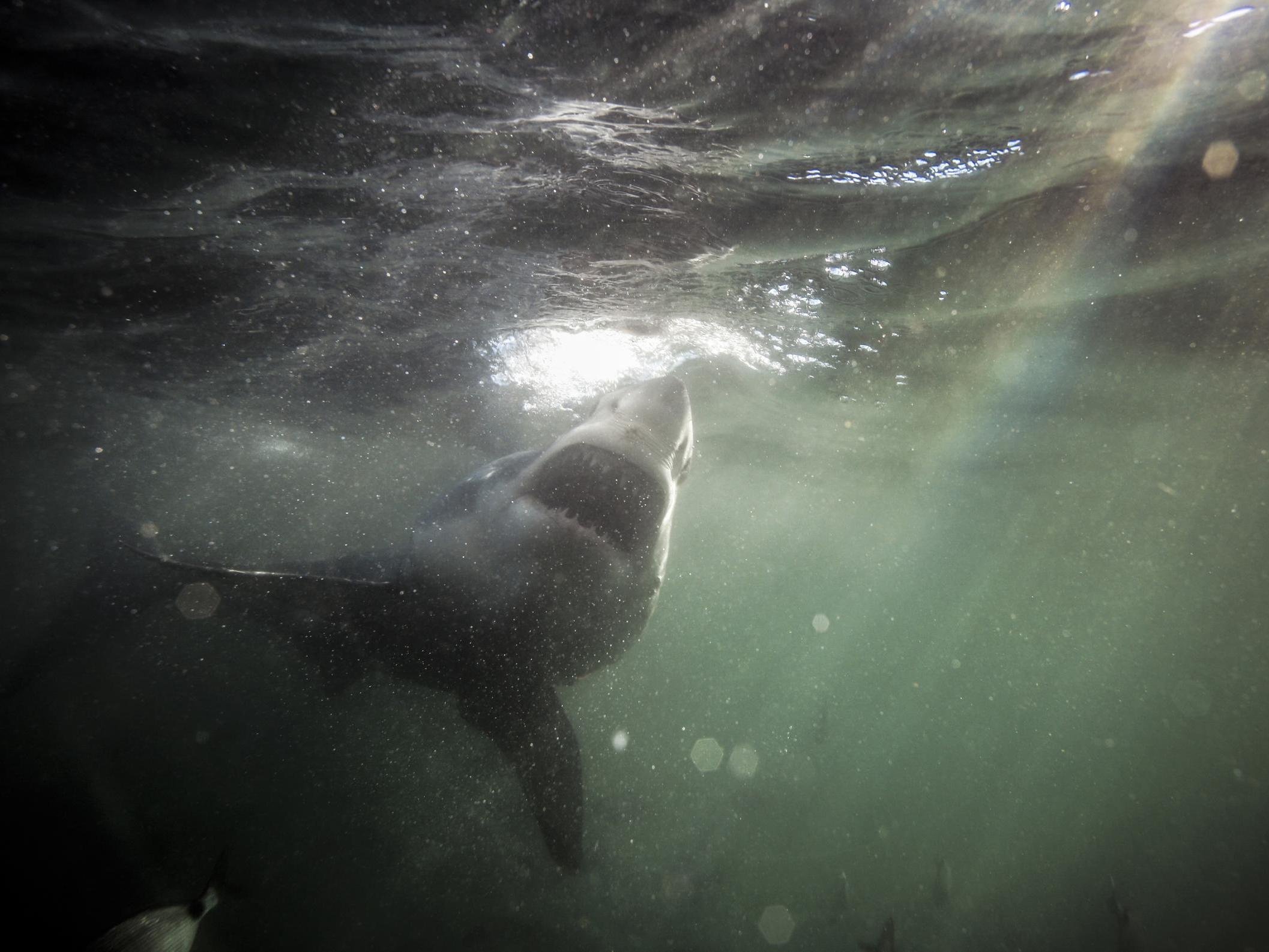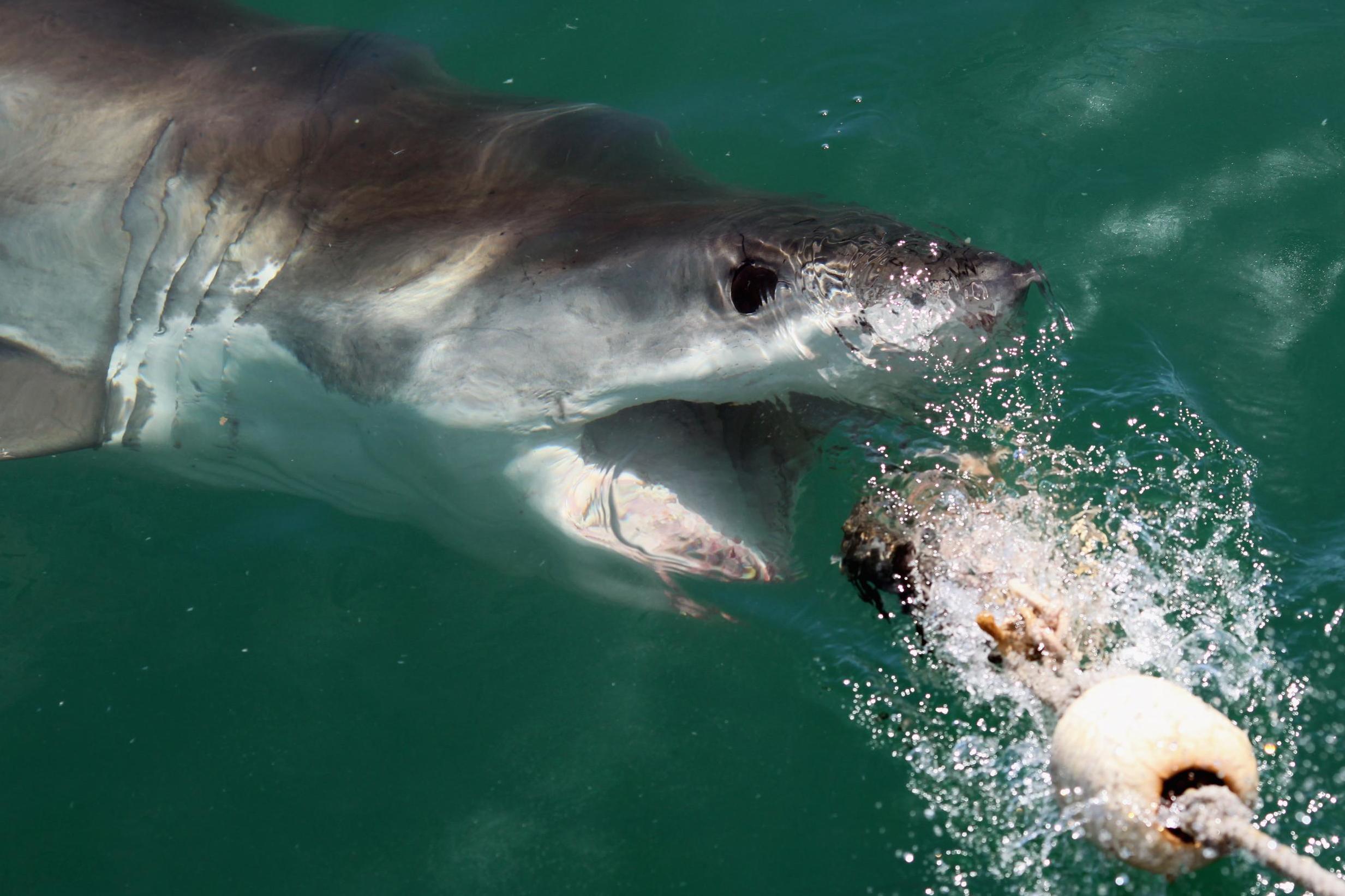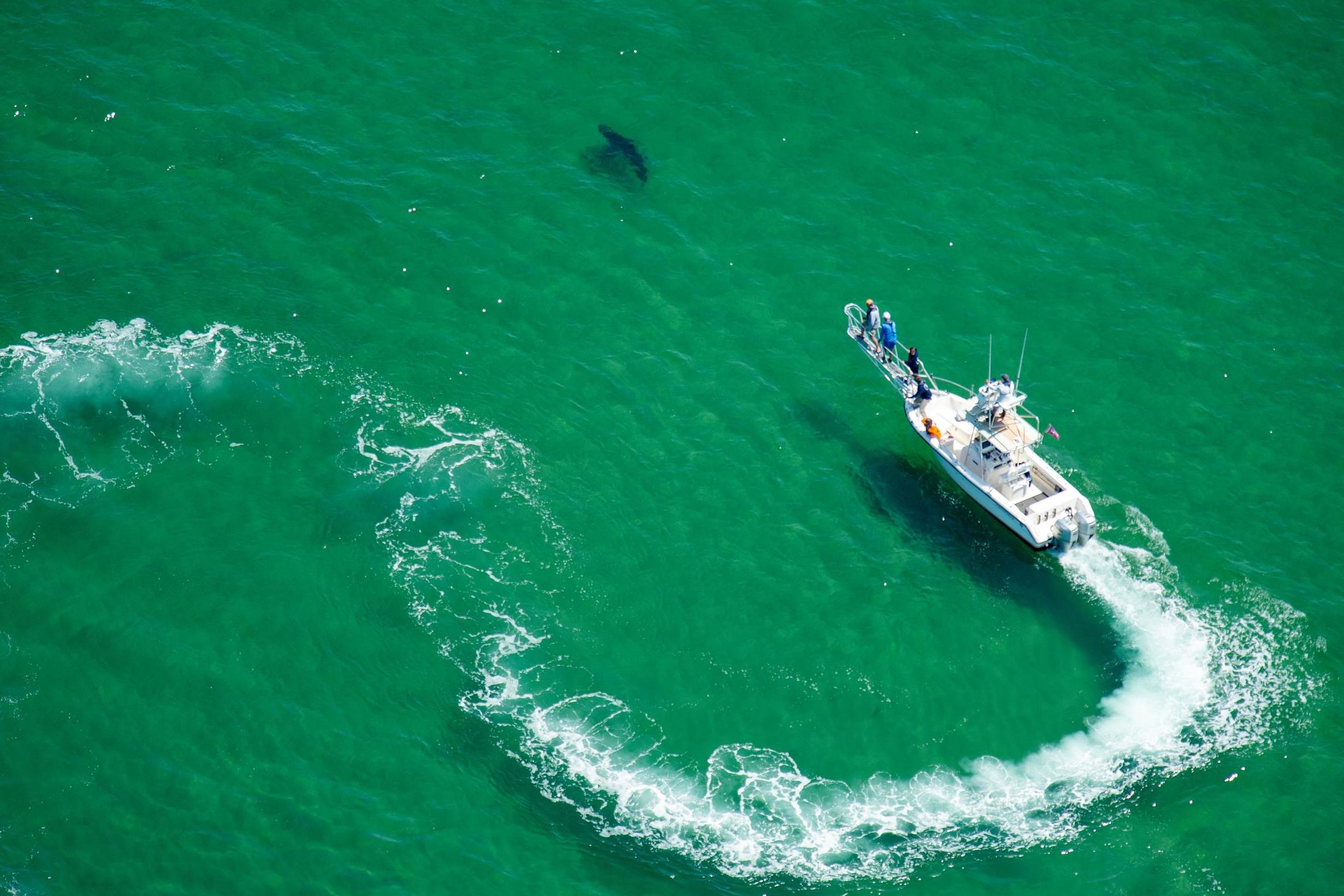Why are bookmakers betting on great white sharks?
It’s certainly not quite a horse race, but some gamblers have started taking wagers out on our toothy friends, writes Katherine J. Wu

Some sharks embark on journeys that span thousands of milesSome bookies warn that you will sleep with the fishes. But one bookmaker wants you to bet on them instead.
A couple of weeks ago, MyBookie, an online sportsbook, invited gamblers to place wagers on the summer migration patterns of nine great white sharks. The company’s website displayed odds on various aspects of each shark’s travel itinerary, using data mined from Ocearch, a nonprofit that has been tracking the animals’ movements for years. An interactive map on Ocearch’s website monitors shark migration in near-real time, providing gamblers ample fodder for wagers – akin, perhaps, to a virtual horse race, conducted entirely at sea.
With most public sports out of commission because of the coronavirus pandemic, the betting market has been thin in recent months. Wagering on sharks could give gamblers an outlet, and some conservationists wonder if it might result in positive press for oft-maligned great whites. But others worry about the ethical implications of merging these two disparate pursuits – and a tumultuous week of conversations reveals that MyBookie might have bungled its first foray into shark speculating.
In an interview, Chris Fischer, founder of Ocearch, says he was unaware of what MyBookie was doing until he read a Forbes article about the event. Though MyBookie representatives had contacted the nonprofit via Facebook earlier in June, a formal meeting about a collaboration had yet to occur when the virtual sportsbook debuted the event, without Ocearch’s permission or knowledge.
Fischer says staff members at Ocearch asked MyBookie to suspend the site on the afternoon of 17 June, just hours after it had gone live. The two organisations are now negotiating, and it is unclear whether the (now defunct) shark betting endeavour will resume.
Fischer emphasises that while he believes MyBookie mishandled this event, he is not ready to dismiss the general idea that gambling and wildlife conservation might safely intersect.
“At first, I thought, we can’t be doing science and gambling at the same time,” Fischer says. “But this is totally out of the box. If you’re thoughtful, you ask, ‘How could this manifest?’”
Wayfaring fauna have been the subjects of wagers in the past. In 2015, bookmaker William Hill joined forces with the British Trust for Ornithology to host a betting market on the spring migration of 17 common cuckoos. As part of the partnership, the bookmaker donated £1,000 to the birding organisation, and in a 2015 interview with Audubon, a spokesperson for William Hill said the wagers were intended to raise awareness about cuckoo biology and behaviour.

Another online bookmaker, which is no longer in business, placed odds on 2007’s Great Turtle Race, a conservation event that followed satellite-tagged leatherbacks as they “raced” from Costa Rica to feeding areas south of the Galapagos Islands, says MyBookie’s head oddsmaker, David Strauss. (That is his professional name; he asks that his real name not be used out of concern for his safety.)
With most sports left in a lull from the lockdown, Strauss took inspiration from 2007’s events, and began to trawl the internet for other tracked species. A cadre of sharks cruising off North America’s Atlantic coast, he reasons, might provide a fun alternative to betting on pro table tennis or who would play the Penguin in the next Batman movie.
“With no sports running, we’ve had to get more creative than usual,” he says. “The shark is a good animal for this – it follows some of the same migratory patterns, so you can set odds on it. We kind of know where it’s going to go, but we don’t know when it’s going to get there.”
A cadre of sharks cruising off North America might provide a fun alternative to betting on who would play the Penguin in the next Batman movie
Though perhaps best known for their toothsome smiles, great white sharks are a fairly cosmopolitan bunch. Some embark on seasonal journeys that stretch for thousands of miles, likely in search of real estate rich in food and mates. But much about the sharks’ sojourns remains unknown – gaps that groups like Ocearch are trying to fill. Since its founding in 2007, the organisation has outfitted more than 100 great white sharks with tags that ping their location to researchers whenever the beasts break the water’s surface.
Melissa Cristina Marquez, a shark scientist and founder of Fins United Initiative, says that a betting campaign like MyBookie’s, while unconventional, could be a new way for the public to engage with sharks.
Others saw additional benefits to such a team-up. It could lead to an especially positive outcome if MyBookie “offered donations to shark researchers”, who work in a field that is often in need of more financial support, says Jasmin Graham, a marine biologist at Mote Marine Laboratory.
Strauss says he had intends for MyBookie to offer Ocearch financial sponsorship, though he didn’t think shark betting – if it resumed – would pull in much profit for his own company. “We’re not hoping to make a million dollars here,” he says.
But Catherine Macdonald, a shark researcher at the University of Miami, isn’t so sure about the gimmick.

“There isn’t necessarily only one right way to care” about sharks, she says. But in an era in which films like Jaws and Sharknado still predominate the public’s conception of great whites, gambling could end up reinforcing the association between sharks and entertainment, perhaps “cheapening” the animals’ significance.
In the hundreds of millions of years that they have travelled the oceans, sharks have become linchpins that hold entire marine ecosystems together. “They have huge impacts,” Graham says. “They don’t get a lot of respect for all the work they do.”
Sharks’ lives should be seen as more than “a betting game”, Macdonald says. Even well-intentioned wagers could saddle the animals with a reputation that eclipses the “evolutionary marvels” they are.
Whether MyBookie poses that particular risk remains to be seen. In an interview on 18 June, Strauss said he hoped the event would be back up and running by the next day, two days after being put on hiatus. Fischer emphasises that Ocearch will need much more time to assess if MyBookie’s proposal is good for his organisation as well as the animals it seeks to protect.
“We’ve never dabbled in this space,” Fischer says. But he noted that Ocearch’s brand had been “hijacked” before, including one instance in which a foreign company put several of the nonprofit’s tagged sharks up for paid adoptions. Any contenders for Ocearch partnership require “a fair bit of vetting”, he says.
Even if Ocearch doesn’t end up working with MyBookie, the idea of optioning sharks for the gamblesphere is “interesting”, Fischer adds. “It would have been much more interesting if I had known who they were before they did it.”
© The New York Times
Join our commenting forum
Join thought-provoking conversations, follow other Independent readers and see their replies
Comments
Bookmark popover
Removed from bookmarks